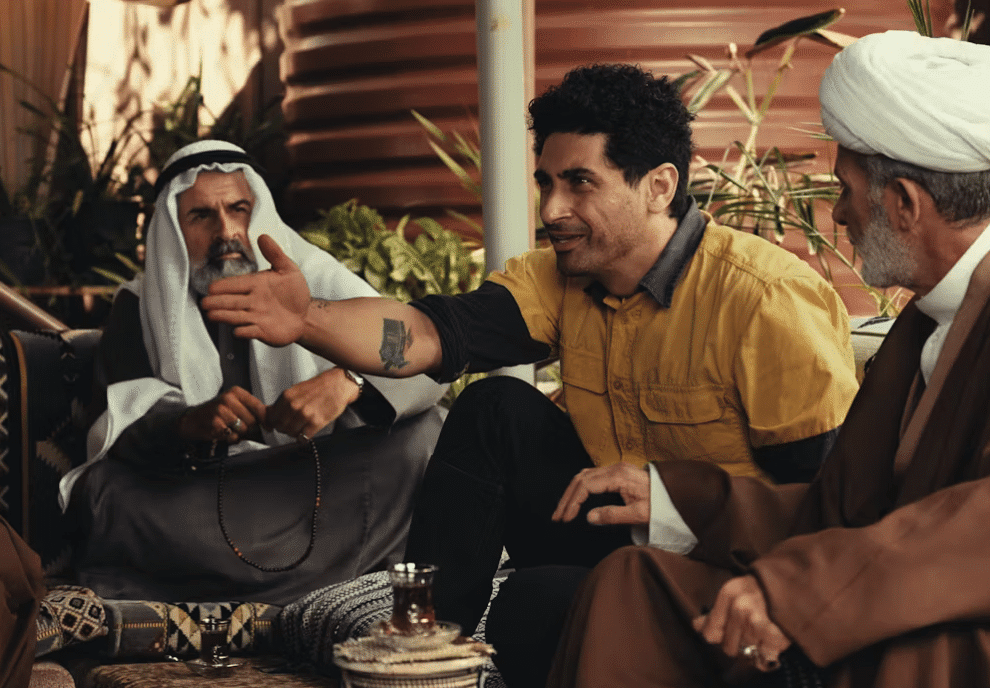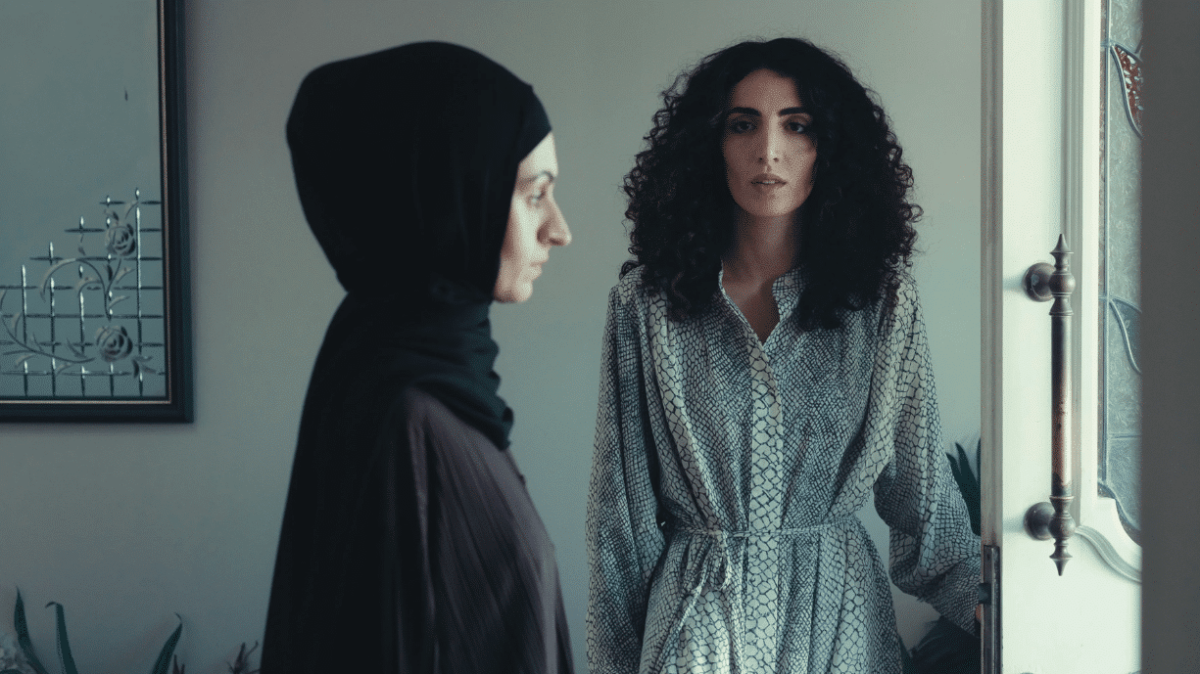House of Gods has a tricky balancing act to perform. Set in the Iraqi diaspora in Fairfield, western Sydney, its storytelling is very specific to that particular strand of Islam, where a conservative community takes their religious and political cues much more from Iraq than from Australia. It could be set in any country where Iraqi people have settled.
Yet that’s also the show’s dramatic tension. Sheikh Mohammad (Kamel El Basha) is a progressive cleric vying with the more traditional Sheikh Shaaker (Simon Elrahi, who sadly died last November) for the leadership of the Messenger mosque. And what sets their theological positions apart is that Sheikh Mohammad explicitly wants to harmonise his community’s values with those of modern Australia.
So, the show’s dramas are both specific to the characters’ world and express universal struggles for power, respect and love. Like another beloved and award-winning drama, the metaphor it chooses to manage insiders and outsiders, actions and reputations, is the family.
Indeed, co-creators Osamah Sami and Shahin Shafaei have called it ‘Succession set in a mosque’ – and at the start of this year I compared it to Prosper, recommending House of Gods ‘if you’d prefer your religious dynastic drama more halal’.
Does the balancing act work?
Based on its first two episodes, it’s teetering, but it doesn’t topple. While I can’t speak to its authenticity – reviews on that front have been mixed – House of Gods is solidly enjoyable on the level of melodrama. It’s full of familiar kinds of conflict, as Sheikh Mohammad’s three kids jostle for his approval as well as for self-determination and local power.
Director Fadia Abboud (Here Out West, the forthcoming Four Years Later) pays attention to the everyday textures of the characters’ lives, like the way Sheikh Mohammad’s hot-headed son, Isa (Osamah Sami), uses a call-to-prayer app on his phone, or Sheikh Mohammad repurposes a Woolworths-brand Greek yoghurt container while gardening.
At times I imagined the stereotypical ABC viewer muttering into their cup of tea that with its uncompromising attention to diasporic detail, and subtitled Arabic dialogue, this is ‘more of an SBS show’ – an insular story that resonates most for viewers inside its community.
For instance, now-fired ABC journalist Antoinette Lattouf makes an early appearance as a local radio host who imperils Sheikh Mohammad’s leadership bid by grilling him on why he’s been photographed allowing a white woman to kiss him in a social-media photo.
That everyone in the community is listening to this show and sharing the controversial image – and that this might prove disastrous for an upcoming leadership contest decided in Iraq – evokes a media power that’s a little confronting to ponder, considering how atomised and alienated from its civic purpose Australian journalism so often feels.

But the progressive characters get to be more nuanced; the show doesn’t dig as much into why the conservative characters hold their values. Sheikh Shaaker and his camp spend a lot of time glowering sinisterly like Rocky and Bullwinkle villains.
This is why I found myself enjoying the scenes of theological debate between the rival clerics and their supporters – these are the moments in which House of Gods distinguishes itself as something more than a ‘Muslim drama’.
The role of women
Another highlight of House of Gods is its portrayal of different kinds of agency among Muslim women. At first, I wasn’t on board for the archetypal Romeo-and-Juliet romance the show seems to be developing between Isa and Sheikh Shaaker’s daughter, Jamila (Priscilla Doueihy). Jamila at first seems like a stereotypical submissive Muslim wife: married to her dad’s lieutenant Aqil (Azmi Al-Hasani) and parenting their autistic son Yusuf (Ali Ibrahim).
There’s clearly an energy between Jamila and Isa that will only lead to trouble if either of them act on it – which it will, since Isa courts trouble. But she’s also her own person, and a good friend of Isa’s sister Batul (Maia Abbas). Discussing life over swimming sessions at the local pool, she tells Batul, ‘I made my choice’.
Read: House of Gods on ABC iview: need to know
While Jamila teases Batul about her lovesick husband Bilal (Saif Alawadi), who’s waiting for her back in Baghdad, there’s also more to Batul – and her marriage – than the pious, self-righteous woman we first meet. Rather than pursuing progressivism the same way as her younger sister Hind (Safia Arain) – going to fashion school, moving out of home – Batul wants a place for her ambitions within the religion she loves, without having to modify it.
Perspectives on power
An intriguing dramatic choice for writers Sami, Shafaei, Blake Ayshford and Sarah Bassiuoni is to make Sheikh Mohammad pivotal while treating his children as point-of-view characters. El Basha’s performance is wonderful, giving the cleric a gentleness that his opponents mistake for softness – but he’s also wily, and stern when he needs to be.
The show introduces us first to Isa, who runs his own business washing industrial vehicles. Having been adopted from a Baghdad orphanage, Isa keenly feels a sense of loyalty and obligation to his family – and he’ll do anything to make sure his dad wins the election.
Isa is proud to be his dad’s vice-president. But he’s terrible at wielding power: he makes rash decisions and constantly misjudges people and situations. He finds himself in increasingly compromised positions, and makes even worse decisions trying to flail his way out again.
One of the big dramatic story arcs concerns Samir (Majid Shokor), Sheikh Mohammad’s close friend who, with him, was tortured as a political prisoner under Saddam Hussein’s regime. Now, he’s a respected restaurateur whom the family is hoping will join the mosque’s community council.
Various characters try to woo ‘Uncle Samir’ in different ways – Isa tries to publicly recruit him in front of his customers, while Sheikh Mohammad entreats him privately. But it’s Batul who succeeds – through an act of ruthlessness that shows why she’s the head-kicking family consigliatore that her sentimental brother could never be.
Soft but open power, not authoritarianism or backchannel dealings, seems more savvy for the new leader of a community where a divorced woman can be refused service in a butcher shop owned by Sheikh Shaaker’s goon Abu Hany (Wadih Dona), and a genial local soccer coach (Serag Mohamed) turns surly at the suggestion he shouldn’t kick a player off the team for being Sunni rather than Shiite.
Like the sheikh, House of Gods is working hard to find its place and move with its times. And it’s a very absorbing balancing act to watch.
House of Gods airs on ABC TV at 8:30pm Sundays, with all episodes streaming on ABC iview.
Actors:
Osamah Sami, Kamel El Basha, Maia Abbas, Safia Arain, Prisclilla Doueihy, Simon Elrahi, Majod Shokor
Director:
Fadia Abboud
Format: TV Series
Country: Australia
Release: 25 February 2024





